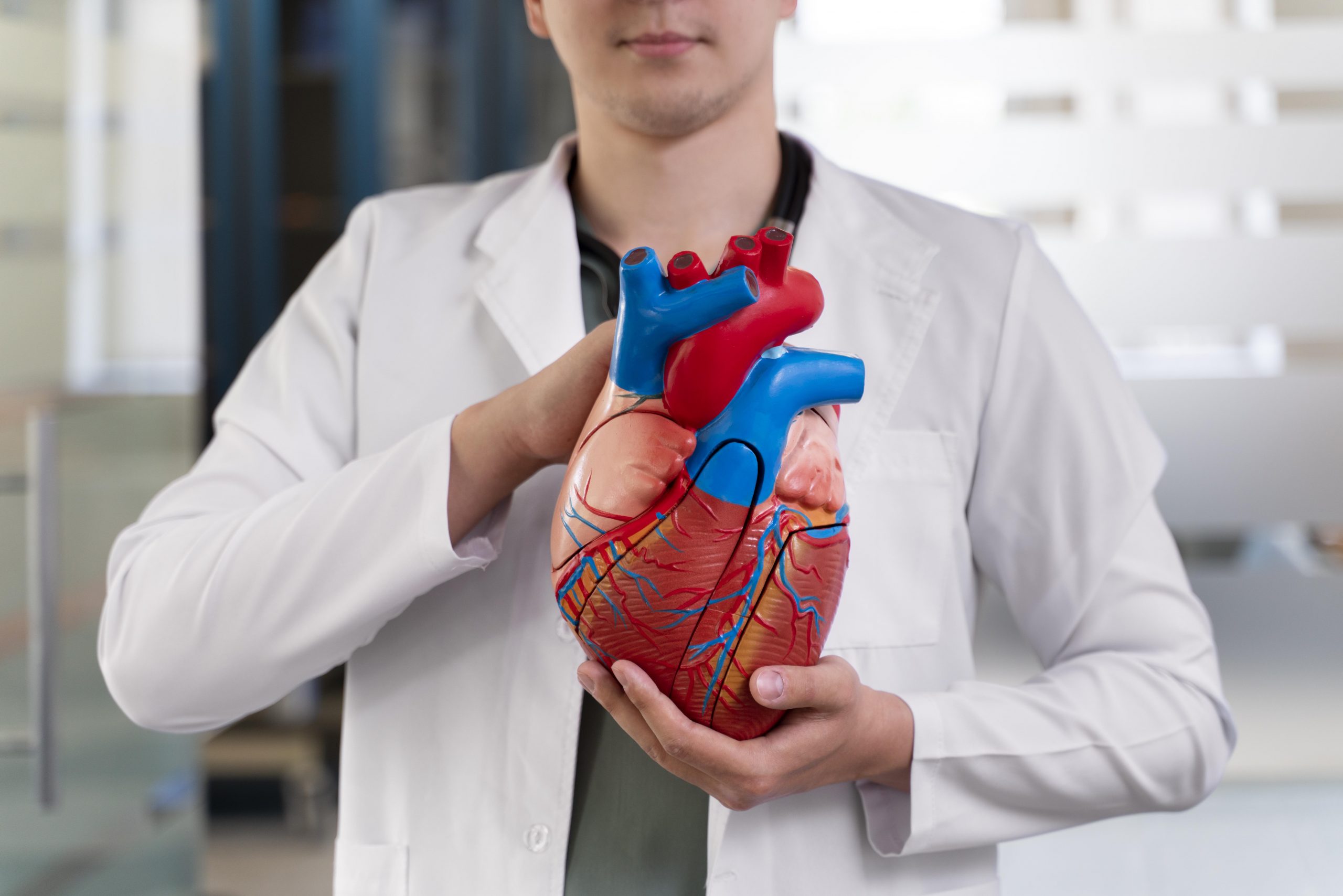Cardiology
Cardiology - Best Cardiac Hospital in Nashik
What is Cardiology?
Cardiology is a medical specialty and treatment of heart and blood vessel diseases. People with heart or cardiovascular disease can be referred to a cardiologist. Cardiology is a branch of internal medicine. Cardiologists are different from cardiac surgeons. The heart surgeon opens the chest and performs heart surgery. APEX Wellness Hospital is the Best Cardiac Hospital in Nashik with a team of experienced cardiologists who first diagnose the heart for treating heart-related diseases.
The cardiologist will perform tests and may perform procedures such as cardiac catheterization, angioplasty, or implanting a pacemaker.
Heart disease is particularly related to the heart, while cardiovascular disease can affect the heart, blood vessels, or both.

Cardiovascular System
The basic functions of the cardiovascular system include the way the heart processes oxygen and nutrients in the blood, called coronary circulation. The circulatory system consists of coronary arteries and coronary veins.
There are many cardiovascular diseases that have been treated and studied in the field of cardiology. These include acute coronary syndrome, which covers a wide range of symptoms of myocardial infarction. Angina pectoris, atherosclerosis, coronary artery disease, and restenosis are other common diseases. The broader categories of diseases in the field of cardiology include cardiac arrest; myocardial or cardiomyopathy, including various cardiomyopathy; pericardial or outer heart diseases, including types of pericarditis; heart valve diseases, including aortic valve and mitral valve, Pulmonary valve, and tricuspid valve; congenital heart defects, from atrial septal defect to ventricular septal defect; vascular disease or vascular disease, including aneurysm, deep vein thrombosis, varicose veins, vasculitis, and other vascular diseases.
Various devices are used in cardiology, including various types of balloons and defibrillators, pacemakers, and stethoscopes. Artificial hearts are also used and studied in the field of cardiology.
What do Cardiologists do?
Cardiologists specialize in detecting, preventing, and treating the heart and vascular diseases (cardiovascular diseases). These diseases are:
- Heart attack
- Heart failure
- High blood pressure
- Arrhythmia (abnormal heart rhythm)
- Heart valve problems
- Heart infections
The cardiologist may see a doctor in his office or hospital. They can:
- Conduct physical examinations
- Order blood tests, Electrocardiograms (ECG), exercise stress tests, or cardiac imaging studies, etc.
- Understand and interpret the test results to diagnose possible diseases the patient may have
- Prescribe treatments for the patient
- Suggest changes in lifestyle, For example, diet adjustment, maintaining a healthy weight, stress management, and regular physical exercise.
- Provide counseling to prevent heart disease.
- Perform some procedures, such as cardiac catheterization or implantation of a cardiac pacemaker.
- Refer you to a cardiac surgeon or interventional cardiologist.
Which different tests do Cardiologists carry out?
- Electrocardiogram (ECG or EKG): Record the electrical activity of the heart.
- Ambulatory ECG: Record the heart rhythm of the patient during exercise or daily activities. Small metal electrodes are connected to the chest and connected to the Holter monitor through wires to record the rhythm.
- Stress test: Displays changes in heart rate during rest and exercise to measure the performance and limited output of the heart. It can detect inflammation around the heart, called pericarditis.
- Cardiac catheterization: A small tube in or near the heart collects data to help relieve blockages. You can take pictures and check the function of the heart and electrical system. The technology based on the fluoroscopy catheter can be used to treat congenital heart, valve, and coronary artery diseases.
- Nuclear cardiology: Nuclear imaging uses radioactive materials to study cardiovascular diseases and disorders non-invasively.
- Echocardiogram: Provides an ultrasound image showing the structure of the heart cavity and surrounding area, and can show the working condition of the heart. An echocardiogram can measure how the heart pumps blood, which is called the cardiac output.
When should you go to Cardiologists?
If a person has symptoms of heart disease, their doctor may refer them to a cardiologist.
Following are the various symptoms that may indicate a heart problem:
- Shortness of breath
- Dizziness
- Chest pain
- Heart rate or rhythm changes
- High blood pressure
A cardiologist can do test to detect heart murmurs or abnormal heart rhythms.
They often treat patients with heart attacks, heart failure, or other heart problems. They help make decisions about heart surgery, cardiac catheterization, angioplasty, and stent implantation.
Heart diseases that cardiologists can help treat include:
- Atherosclerotic fibrillation
- Arrhythmias
- Congenital heart Disease
- Coronary heart disease
- Congestive heart disease
- High cholesterol and triglycerides
- High blood pressure
- Pericardial disease
- Ventricular disease
If you have a family history of heart disease or high cholesterol, if you are or have smoked, if you have diabetes, or you are starting, you need to see a cardiologist for a new exercise even if you have no symptoms.
Women with preeclampsia may have an increased risk of heart disease during late pregnancy or menopause.
Why Choose APEX Wellness Hospital?
APEX Wellness Hospital is well known as the Best Cardiac Hospital in Nashik and provides best-in-class treatment for the heart and also has years of experience in performing surgical procedures for different heart surgeries. At APEX Wellness Hospital all the cardiologists are specialized in diagnosing and treating diseases related to the cardiovascular system.
